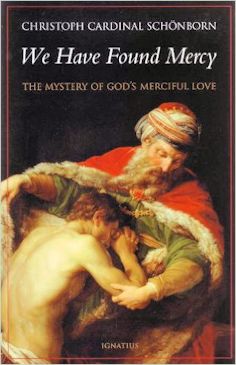
|
Posted December 8, 2015
Book: We Have Found Mercy: The Mystery of God's Merciful Love Author: Christoph Cardinal Schonborn Ignatius Press. San Francisco, CA. 2015. Pp. 156 An Excerpt from the Jacket:
Sister Faustina Kowalska, the Polish nun who had mystical encounters with the merciful Christ in the early 20th century, was canonized a saint by Pope John Paul II. That Pope also declared the first Sunday after Easter to be Divine Mercy Sunday, and it was during the vigil Mass of this feast that the Holy Father received his last Holy Communion and drew his last breath. The message of Divine Mercy as communicated through Sister Faustina is both a starting point and a recurring theme for Cardinal Schonborn's discussion of God's merciful love. The Archbishop of Vienna explores the presence of God's great mercy in the Scriptures. Tradition, the life of Christ, the sacraments, and the works of the Church, while raising important questions along the way, such as, "What is the relationship between mercy and justice." "Mercy is the central nucleus of the Gospel message. In our time humanity needs a strong proclamation and witness of God's mercy. . . .Go forth and be witnesses of God's mercy, a source of hope for every person and for the whole world." Pope Benedict XVI An Excerpt from the Book: Is mercy primordially human or (only) primordially Christian? Friedrich Nietzsche regards it as a hallmark of Christianity of Christianity, a harmful attitude that is hostile to life. In his late work The Antichrist he writes: "The weak and the botched should perish: first principle of our charity. And one should help them to it. What is more harmful than any vice? Practical sympathy for the botched and the weak -- Christianity." This passage is shocking because it is so blunt. But does the demand for assisted suicide not implement precisely what Nietzsche call "the first principle of our charity" in his protest against Christianity. . . .Recent studies on the brain reveal an exciting physiological foundation that has in the meantime become accessible in popular scientific presentations as well. The so-called mirror neurons in the brain cause us to wince when we see pain in others, as though we ourselves were experiencing it. Joachim Bauer, a professor of psychoneurology in Freiburg, Germany, explains the phenomenon in a comprehensible way in his book Warum ich fuhle, was du fuhlst. It is helpful to be acquainted with this research, at least in its main lines, so as to see how deeply engrained in human nature mercy is. It is no accident that we equate mercilessness with inhumanity. Table of Contents: 1. John Paul II: The Pope of mercy 2. The wrathful and merciful God 3. The severe mercy of Jesus 4. The price of mercy: what it cost Jesus 5. Paul, a witness and missionary of the divine mercy 6. The sacrament of mercy 7. The works of mercy 8. The mother of mercy 9. Mercy for all? |
|
